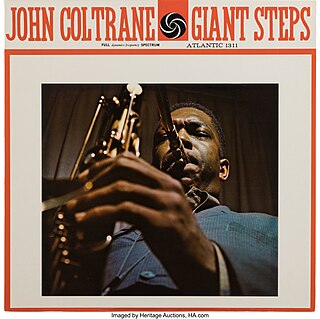
Giant Steps is a studio album by the jazz musician John Coltrane. It was released in February 1960 through Atlantic Records. This was Coltrane's first album as leader for the label, with which he had signed a new contract the previous year. The record is regarded as one of the most influential jazz albums of all time. Many of its tracks have become practice templates for jazz saxophonists. In 2004, it was one of fifty recordings chosen that year by the Library of Congress to be added to the National Recording Registry. It attained gold record status in 2018, having sold 500,000 copies.
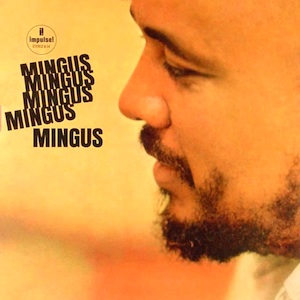
Mingus Mingus Mingus Mingus Mingus is a studio album by the American jazz composer and bassist Charles Mingus which was released on January 9, 1964.

The Shape of Jazz to Come is the third album by the jazz musician Ornette Coleman. Released on Atlantic Records in 1959, it was his debut on the label and his first album featuring the working quartet including himself, trumpeter Don Cherry, bassist Charlie Haden, and drummer Billy Higgins. The recording session for the album took place on May 22, 1959, at Radio Recorders in Hollywood, California. Although Coleman initially wished for the album to be titled Focus on Sanity after the LP's fourth track, Atlantic producer Nesuhi Ertegun suggested the final title, feeling that it would give consumers "an idea about the uniqueness of the LP."
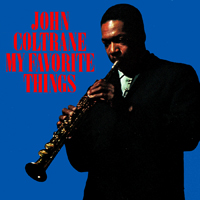
My Favorite Things is a studio album by the jazz musician John Coltrane. It was released in March 1961 on Atlantic Records. It was the first album to feature Coltrane playing soprano saxophone. An edited version of the title track became a hit single that gained popularity in 1961 on radio. The record became a major commercial success.
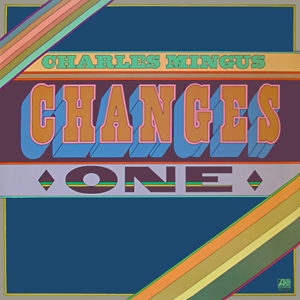
Changes One is an album by the jazz composer and bassist Charles Mingus, released in 1975.

Olé Coltrane is a studio album by the jazz musician and composer John Coltrane. It was released in November 1961 through Atlantic Records. The album was recorded at A&R Studios in New York, and was the last of Coltrane's Atlantic albums to be made under his own supervision.

Coltrane Plays the Blues is an album of music by the jazz musician John Coltrane. It was released in July 1962 by Atlantic Records. It was recorded at Atlantic Studios during the sessions for My Favorite Things, assembled after Coltrane had stopped recording for the label and was under contract to Impulse Records. Like Prestige Records before them, as Coltrane's fame grew during the 1960s, Atlantic used unissued recordings and released them without either Coltrane's input or approval.
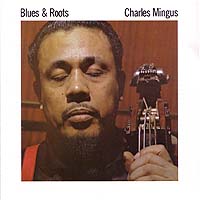
Blues & Roots is an album by Charles Mingus, recorded in 1959 and released on the Atlantic label in 1960. It has been reissued on CD by both Atlantic and Rhino.

Pithecanthropus Erectus is a studio album by jazz composer and bassist Charles Mingus. It was released in August 1956 through Atlantic Records. Mingus noted that this was the first album where he taught arrangements to his musicians by ear instead of putting the chords and arrangements in writing.

Coltrane's Sound is an album credited to the jazz musician John Coltrane, recorded in 1960 and released in 1964 on Atlantic Records, catalogue SD 1419. It was recorded at Atlantic Studios during the sessions for My Favorite Things, assembled after Coltrane had stopped recording for the label and was under contract to Impulse! Records. Like Prestige and Blue Note Records before them, as Coltrane's fame grew during the 1960s Atlantic used unissued recordings and released them without either Coltrane's input or approval.
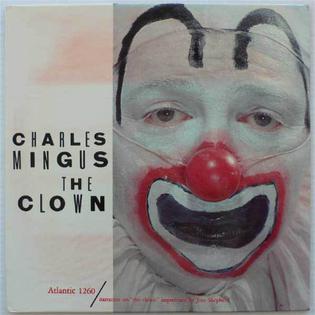
The Clown is a studio album by the jazz bassist and composer Charles Mingus. It was released in September 1957 through Atlantic Records. The recording took place on February 13 and March 12, 1957. The title track features the improvised narration of Jean Shepherd.

Domino is an album by American jazz saxophonist Roland Kirk, released on Mercury Records in November 1962. It was reissued in 2000 on Verve with bonus tracks featuring sessions with Herbie Hancock. It includes Kirk's tribute to Thelonious Monk and Charles Mingus, "Where Monk and Mingus Live", in a medley with the former's "Let's Call This".

Coltrane Jazz is a studio album by the jazz musician John Coltrane. It was released in early 1961 on Atlantic Records. Most of the album features Coltrane playing with his former Miles Davis bandmates, pianist Wynton Kelly, bassist Paul Chambers and drummer Jimmy Cobb during two sessions in November and December, 1959. The exception is the track "Village Blues", which was recorded October 21, 1960. "Village Blues" comes from the first recording session featuring Coltrane playing with pianist McCoy Tyner and drummer Elvin Jones, who toured and recorded with Coltrane as part of his celebrated "classic quartet" from 1960 to 1965.

A Modern Jazz Symposium of Music and Poetry is an album by the jazz bassist, composer, and band leader Charles Mingus, released by Bethlehem Records in mid-1959. In spite of the title, the album does not contain any poetry. "Scenes in the City", however, includes narration performed by Mel Stewart and written by actor Lonne Elder with assistance from Langston Hughes. The composition "Duke's Choice" re-appears, in updated form, as "I X Love" on the 1963 album Mingus Mingus Mingus Mingus Mingus. "Nouroog", "Duke's Choice" and "Slippers" form the basis of the suite "Open Letter to Duke" on Mingus Ah Um.

Changes Two is an album by Charles Mingus. It was recorded on 27, 28, and 30 December 1974 at Atlantic Studios in New York City—the same sessions which resulted in Mingus's album Changes One. Atlantic Records initially released the record; in 1993, it was issued on CD by Rhino Records.
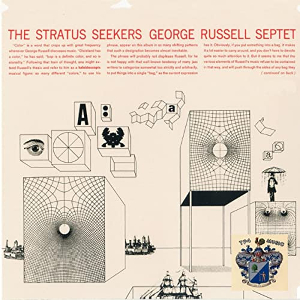
The Stratus Seekers is an album by George Russell released in May or June 1962 on Riverside Records. The album contains performances by Russell with John Pierce, David Baker, Paul Plummer, Don Ellis, Steve Swallow and Joe Hunt.
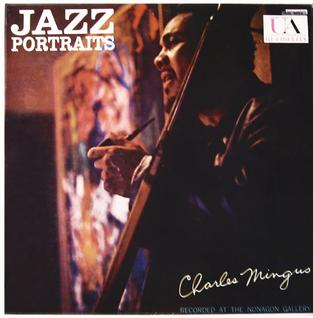
Jazz Portraits: Mingus in Wonderland is a live album by jazz bassist and composer Charles Mingus, recorded in 1959 and released on the United Artists label in September of that year. The original release was titled Jazz Portraits, and a subsequent edition was titled Wonderland, leading to the combined title of Jazz Portraits: Mingus in Wonderland.
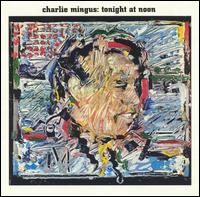
Tonight at Noon is an album of music by the jazz bassist and composer Charles Mingus. It was released through Atlantic Records in July 1964. It compiles tracks recorded at two sessions – the 1957 sessions for the album entitled The Clown and the 1961 sessions for Oh Yeah. These tracks have since been added to the CD re-releases of their respective albums as bonus tracks.
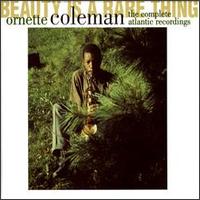
Beauty Is a Rare Thing: The Complete Atlantic Recordings is a box set by American jazz saxophonist and composer Ornette Coleman compiling his master recordings made for Atlantic between 1959 and 1961, released on Rhino Records on November 16, 1993.
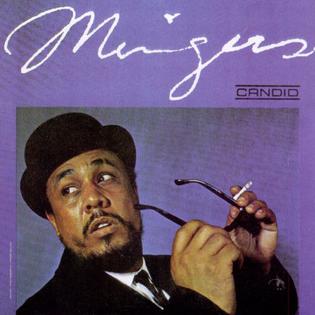
Mingus is an album by the jazz bassist and composer Charles Mingus. The album was recorded in October and November 1960 in New York and released in late 1961 on Nat Hentoff's Candid label.




















